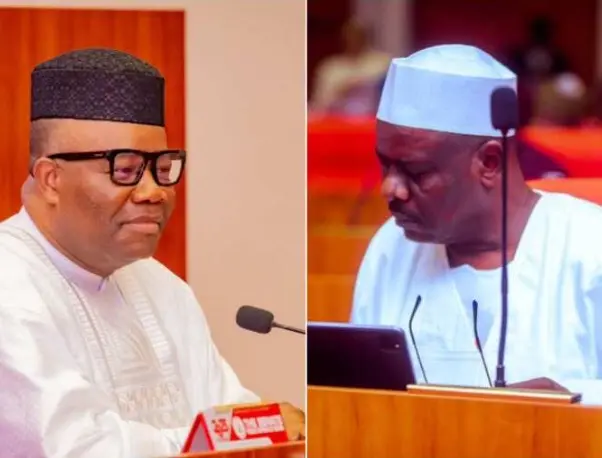UK Forensics Expert Petitions Florida Attorney General Over Wike’s Family Property Deals In U.S.
In a move that underscores the growing demand for transparency in cross-border financial dealings, British digital forensics investigator Henry Omorere has formally petitioned the Florida Attorney General for information about alleged money laundering and public corruption tied to Nigerian public official Nyesom Ezenwo Wike and his family. The whirlwind of allegations centres on multi-million-dollar real estate purchases in Winter Springs, Florida, allegedly using opaque cash transactions and quitclaim deeds that omit Wike’s name.
Who is at the centre of the petition?
- Nyesom Ezenwo Wike, Nigeria’s Federal Capital Territory Minister, a prominent political figure whose public profile has been amplified by these accusations.
- Eberechi Suzette Nyesom-Wike: Wike’s wife, named in connection with the alleged transactions.
- Jordan, Joaquin, and Jazmyne Nyesom-Wike: Wike’s three children, said to be named on the deeds associated with the properties.
Omorere frames the matter as one of “significant public interest and potential serious criminal violations,” noting that reputable media outlets—including Sahara Reporters, BusinessDay, and Peoples Gazette—have reported on the allegations, alongside public statements from Nigerian activist Omoyele Sowore.
The properties under scrutiny
Omorere’s petition highlights three properties in Florida:
- A $2 million mansion at 113 Spring Creek Lane was purchased in March 2025.
- A home at 209 Hertherwood Court was purchased in July 2021 for $459,157, then transferred to Wike’s son, Joaquin.
- A property at 208 Hertherwood Court, purchased in September 2023 for $465,000, transferred to Wike’s daughter, Jazmyne.
The core allegation is that these acquisitions were completed through opaque all-cash transactions and quitclaim deeds executed by Mrs. Nyesom-Wike, with Wike’s name deliberately omitted from the paperwork to evade scrutiny and Nigerian asset-disclosure laws.
What the petition seeks from the Florida AG
The letter, dated September 21, 2025, is addressed to Hon. James Uthmeier, with copies to the Florida Supreme Court and the Director of the Public Information Office. It requests:
- Receipt Confirmation: Written confirmation that the Florida AG’s office received a formal petition from Omoyele Sowore regarding Nyesom Wike in late September 2025.
- Investigation Status Update: Details on whether any review or investigation has been initiated, including:
- The exact date the matter was brought to attention.
- Preliminary investigative steps (e.g., subpoenas, inquiries to county property appraisers, financial transaction analysis).
- Whether the case is under active investigation, referred to another agency (e.g., FBI or IRS CI), or closed.
- Intermediaries Identification: Information about U.S.-based entities involved in the transactions, including:
- Law firms and closing attorneys are handling the closings and title transfers.
- Banks or financial institutions through which funds were wired or held.
- Real estate agents and brokerage firms are involved in listing and facilitating sales.
- Corporate entities (e.g., shell companies or LLCs) that may have served as vehicles for the purchases.
The petition cites the Public Records Law (Chapter 119, Florida Statutes) and emphasises government transparency, seeking broad disclosure of information related to the alleged crimes and associated intermediaries.
The broader significance
Omorere also points to the potential for strengthened U.S.–Nigeria cooperation in recovering stolen assets. He references the recent return of $52.88 million to Nigeria as a precedent and contends that this case could reinforce that the U.S. financial system is not a safe haven for proceeds of foreign corruption.
What this means for readers
- The case highlights how public-interest investigations can cross international borders, involving forensics experts, activists, and journalists in pursuit of accountability.
- If the Florida AG receives and acts on such petitions, it could trigger a formal inquiry into cross-border financial transactions and asset disclosures.
- The involvement of intermediaries—law firms, banks, real estate agents, and shell entities—illustrates the complexity often seen in high-value property deals tied to public figures.
Next steps and considerations
- Monitor official statements from the Florida Attorney General’s office for confirmation of receipt, investigative steps, or any public records released.
- Look for responses from Nigerian authorities or media watchdogs that may corroborate or contest the allegations.
- Consider how cross-border asset tracing and public-record requests can supplement investigative journalism and forensic research.
- Unfortunately, the, the Nigerian government will block these openings



